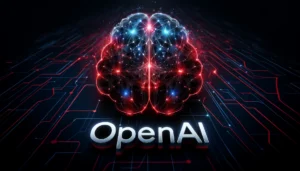An international team of researchers from the University of Edinburgh and the Spanish National Research Council IBBTEC-CSIC employed AI to accelerate the discovery of anti-aging drugs.
Their study identified 3 potential senolytic drugs capable of decelerating aging and preventing age-related illnesses. These drugs function by eliminating senescent cells, often called ‘zombie cells.’ Such cells remain metabolically active but are unable to replicate.
While stopping cell replication acts as a defensive mechanism to prevent the spread of cell damage, it’s not entirely straightforward.
This protective measure is primarily designed to prevent the proliferation of cells that have suffered DNA damage – for instance, cells that have been harmed by exposure to sunlight. By halting the replication of these damaged cells, the body ensures that this damage does not spread to more cells.
However, these cells that have stopped dividing, known as senescent cells, can potentially cause harm. When they enter the senescence phase, they start releasing proteins known to cause inflammation.
This can affect neighboring healthy cells, potentially creating an inflammatory environment. Over time, this accumulation of inflammation can contribute to various health complications.
For instance, inflammation is linked to many diseases, including neurological and degenerative diseases, type 2 diabetes, pulmonary fibrosis, osteoarthritis, and cancer.
Therefore, while the cessation of cell replication is crucial in preventing the spread of DNA damage, the inflammatory response associated with senescent cells can lead to other health issues if not properly managed.
And that’s where senolytic drugs can help.
The role of AI
Previous research on lab mice demonstrated that senolytic drugs improve this inflammatory scenario by eliminating senescent cells and sparing healthy ones.
While approximately 80 known senolytics exist, only a combination of two, dasatinib and quercetin, has been tested in humans.
Drug discovery is exceptionally costly and usually takes 10 to 20 years – it’s a significant bottleneck in the drug development pipeline. In this study, researchers used machine learning (ML) to accelerate the discovery of new senolytic drugs.
They trained AI models on existing senolytics and non-senolytics, enabling the AI to discern between them and predict the likelihood of unencountered molecules being senolytics.
Of 4,340 molecules evaluated, the AI flagged 21 with a high probability of being senolytics within 5 minutes.
One of the study authors, Dr. Vanessa Smer-Barreto, told The Conversation that, if tested traditionally in a lab, it would take £50,000 just to purchase the compounds, excluding the cost of equipment and setup.
Following in vitro testing on healthy and senescent cells, 3 of the 21 molecules, periplocin, oleandrin, and Linkedin, effectively eliminated senescent cells while sparing normal cells.
In further tests, oleandrin, a compound found in the oleander plant, outperformed the best-known senolytics of its kind.
The team is now testing the 3 candidate senolytics on human lung tissue, with the results expected in about two years.
Over the last couple of months, AI has identified potential antibiotics effective at killing drug-resistant bacteria, and a Hong Kong-based biotech company received approval to commence clinical trials with an AI-discovered drug.
AI’s ability to perform complex analysis of molecules is vastly accelerating pharmaceutical development pipelines, opening new opportunities for tackling common and hard-to-treat conditions and diseases.





